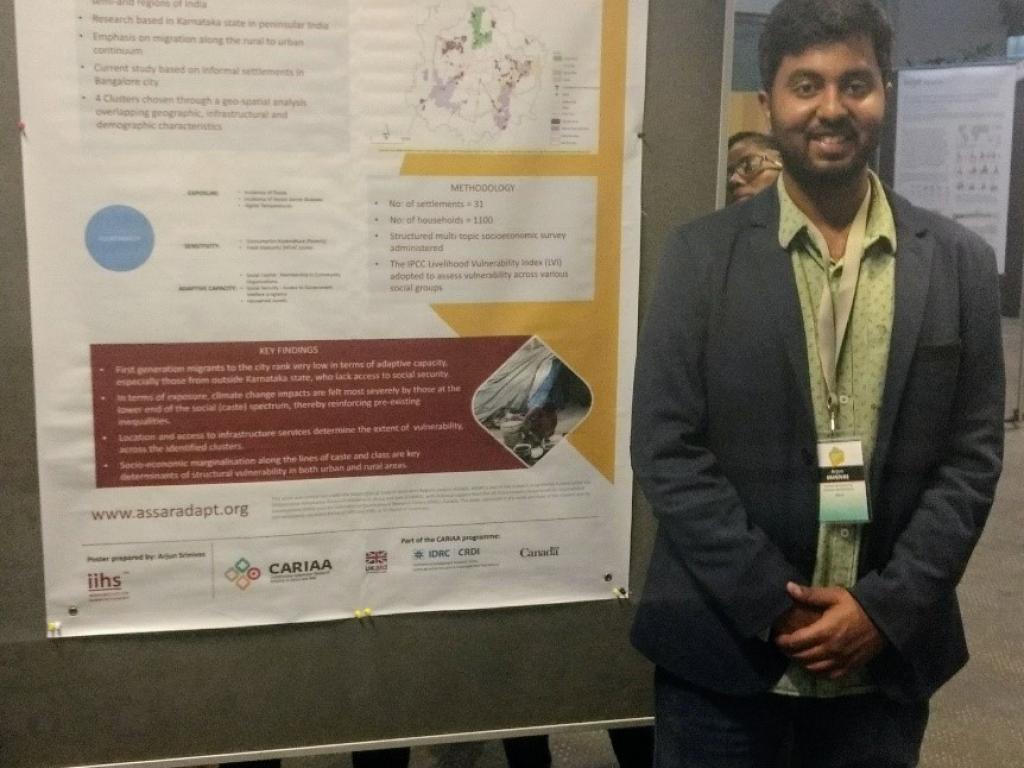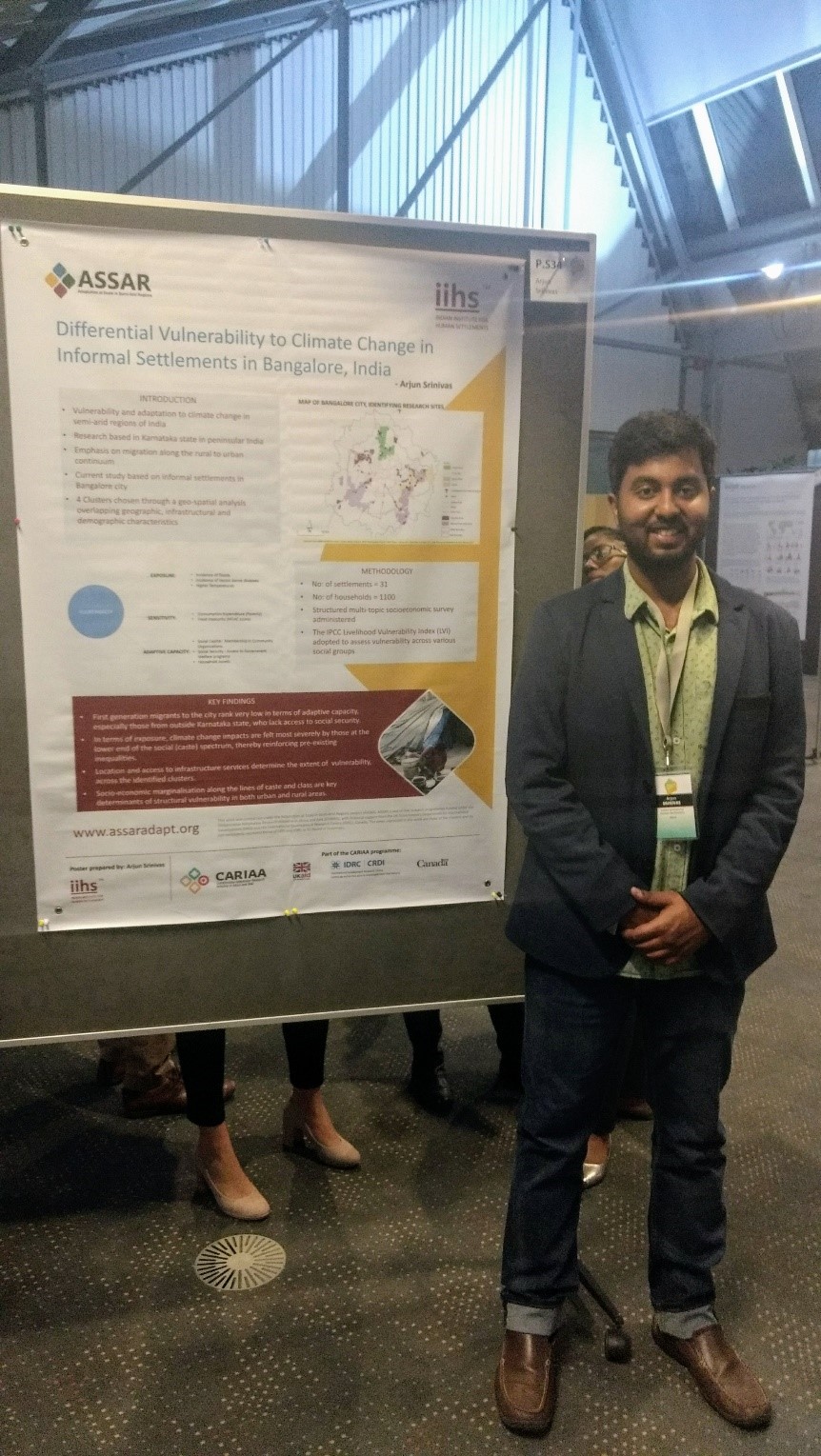Impacts World 2017: Deliberation on a shared global challenge

ASSAR researcher Arjun Srinivas, from the Indian Institute for Human Settlements, reports back on the recent Impacts World 2017 conference which he attended in Potsdam, Germany.
The ‘Impacts World’ conference, organised by the Potsdam Institute for Climate Impacts Research (PIK), took place from 11-13 October 2017 in Potsdam, Brandenburg, Germany. It was organised after an interval of four years to mark the 25th anniversary of the institute. In hindsight, this was the perfect timing for the conference. The year 2017 has seen an unprecedented incidence of extreme weather events across the world. While the impacts were overwhelmingly felt in the Global South (through hurricanes and flooding in the Caribbean and South Asia), Cyclone Xavier, that struck Northern Europe less than a week before the start of the conference, had the Germans perplexed. It was the first cyclone that many had experienced in their lifetime, and was a stark reminder that even wealthy Europe, nestled in the higher latitudes, was not immune to the consequences of climate change.
Existential threat to humanity
The opening lecture by the director of PIK, Dr John Schellnhuber, not only set the tone for the conference, but also offered a glimpse of PIK’s deeply humanistic approach towards their research on climate change. Their work is underpinned by the reality that climate change is an existential threat to humanity, and while the global community must endeavour to avoid the unmanageable, it should strive to manage the impacts that are already being felt by billions across the globe.
The speech invoked the legacies of humanists such as Fridtjof Nansen, a Norwegian explorer, scientist and Nobel laureate, who instituted the ‘Nansen Passport’ for refugees of war and environmental catastrophes, way back in 1921. There was also a reference to the work of acclaimed Brazilian photographer, Sebastião Salgado who has brilliantly documented the strife of humans as well as nature in the Anthropocene.


ASSAR researcher Arjun Srinivas presented a poster titled: ‘Differential vulnerability to climate change in the informal settlements in Bangalore’
Identifying different forms of human mobility in response to climate change
The plenary session on migration highlighted some critical areas of research. This included identifying different forms of human mobility in response to climate change, and how they benefit or undermine adaptation to environmental and climate change. The need for accurate and timely information on both the time perspective as well as the social perspective of migration was emphasized. This would allow for the identification of specific trends and patterns in migration. The discussion that followed the migration plenary was rather contentious. While discussing interventions to manage migration in response to climate change, the participants from the Caribbean small island states raised the issue of compensation from developed, industrialised countries for the destruction wreaked by the trinity of hurricanes in the Caribbean over the past few months. However, the panellists promptly dismissed the likelihood of any form of compensation or liabilities, arguing that this was beyond the scope of the terms stipulated by the Paris climate agreement, and therefore unfeasible. Rather, they argued that the emphasis ought to be in collectively stepping up mitigation measures, to prevent further calamity. In the context of the COP23 at Bonn this week, this very idea of Loss and Damage, is going to be a critical negotiation between SIDS and developed countries.
Intellectually enriching experience
There were several new conceptual approaches that I was introduced to during the workshops. This included the anthropological concept of translocality, that considers migration as a dynamic, open and non-linear process that connects places and people at different localities beyond geographical distances and political borders. This was interlinked with the concept of social-tipping points that imply that marginal changes in environmental hotspots can have disproportionately large migratory outcomes.
To conclude, the conference was an intellectually enriching experience, and an opportunity to engage with cutting edge research on various themes relating to climate change.